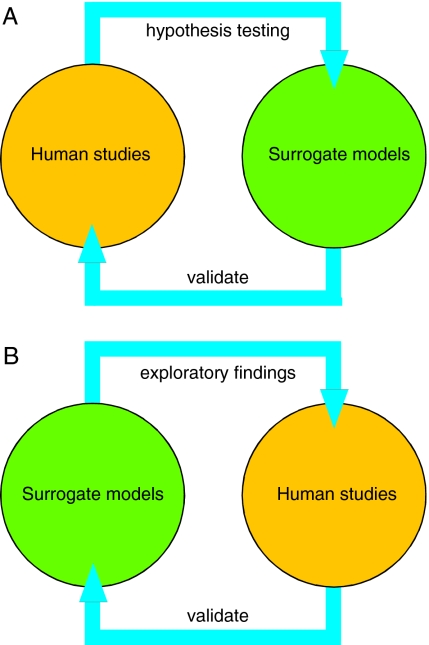Fig. 1.
Validation of hypotheses versus validation of exploratory findings. (A) Experimental findings from human studies often generate hypotheses that cannot be tested in humans. Surrogate experimental models can be very useful to validate these hypotheses. For example, both animal and tissue culture models have been exploited to validate the hypothesis that dopamine loss in the LND brain results from degeneration of dopaminergic axonal projections in LND. (B) Surrogate experimental models can be used in exploratory studies to discover novel directions. Ideally, these findings should be validated by returning to human studies to ensure that they are relevant to the disease being studied. For example, recent findings from both animal and tissue culture models have suggested a defect in the developmental programming of the dopamine neuron neurochemical phenotype. These findings must now be validated by seeking similar defects in selected studies of the LND brain.

